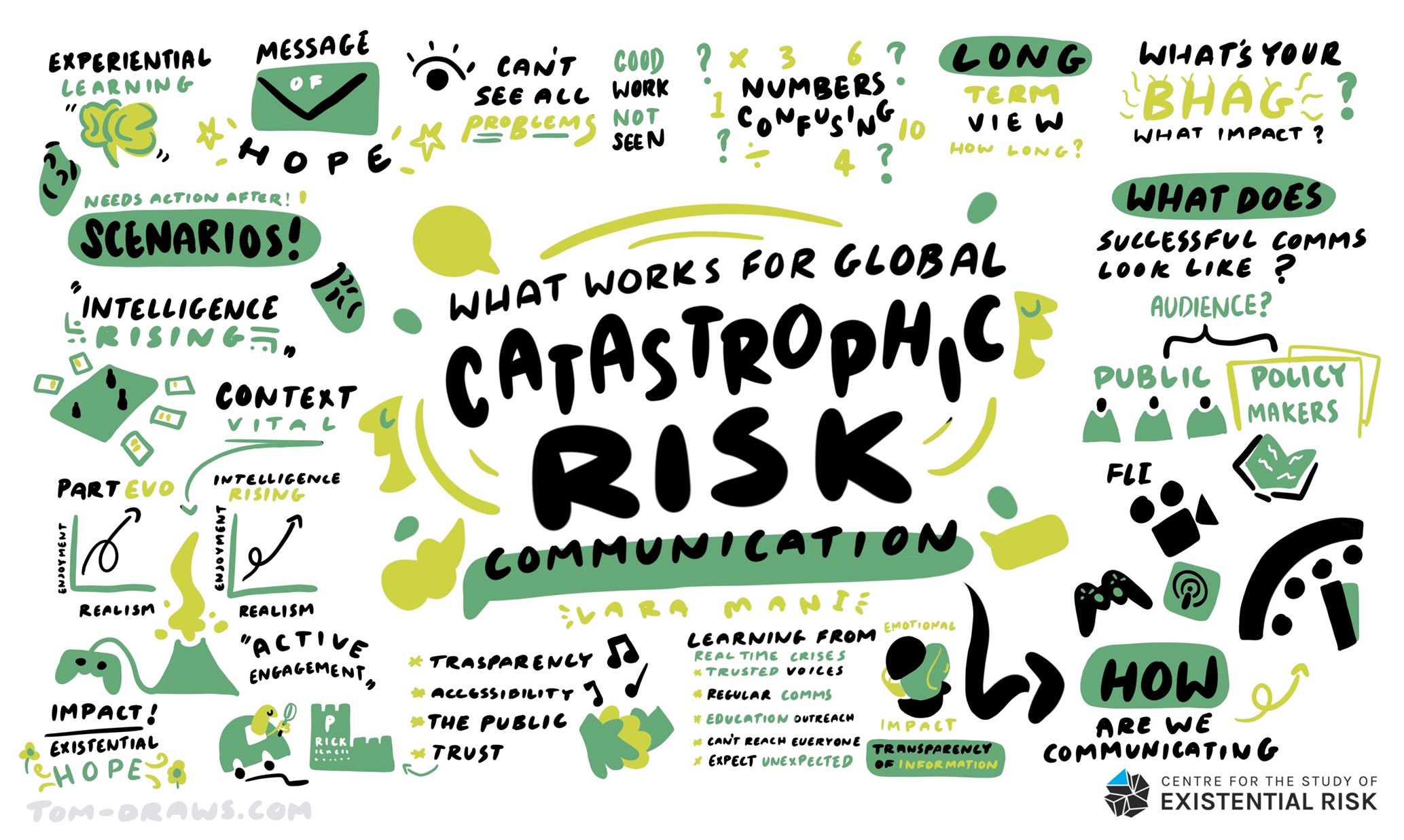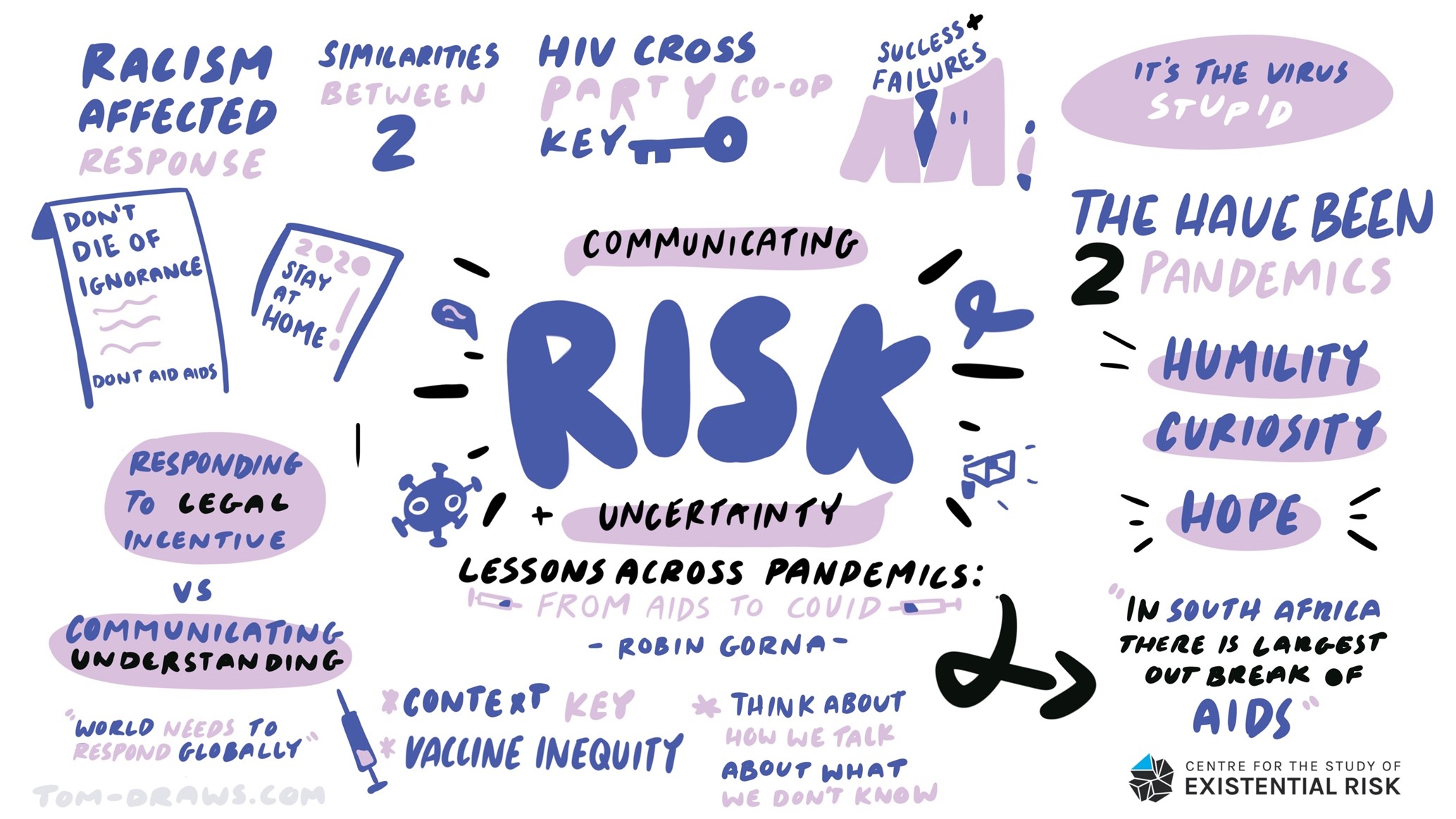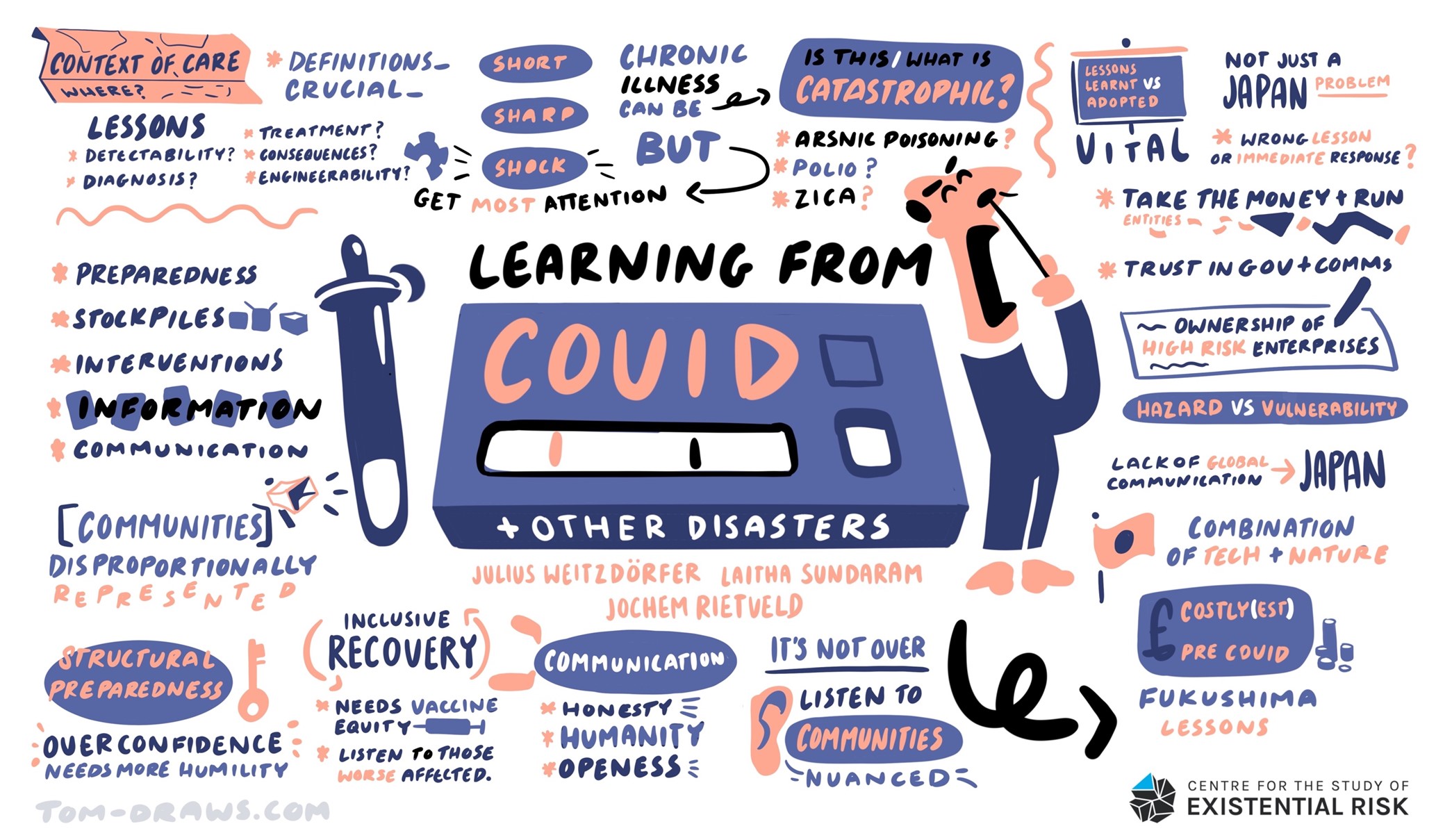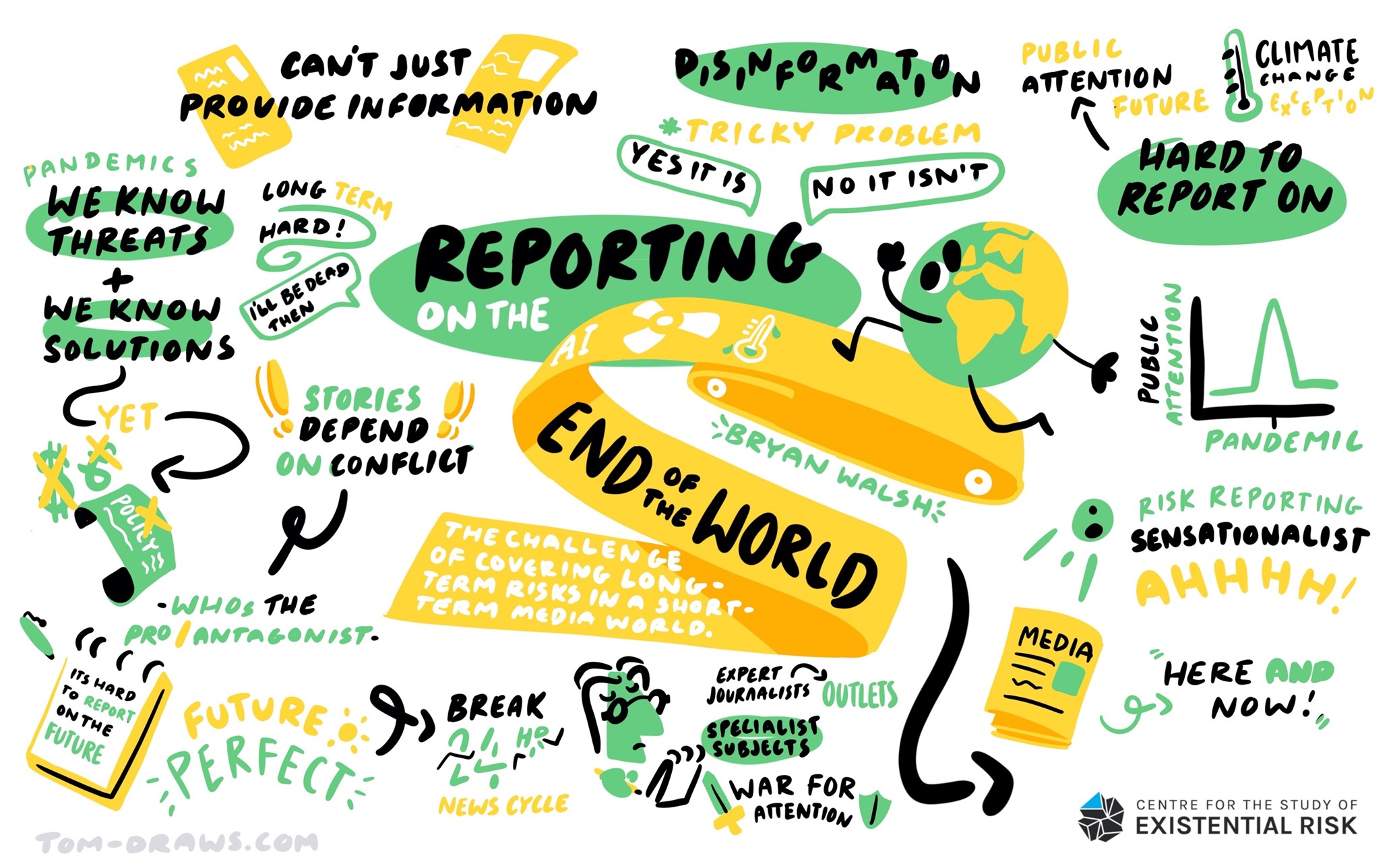Cambridge Conference on Catastrophic Risk 2022
Day 2 - Turned to what we can learn from real catastrophes that have taken place in the future and how we can apply these lessons to the future catastrophes facing us.
The day opened with a talk by one of CSER’s academic programme managers, SJ Beard, on the importance of thinking about real catastrophes in relation to existential risk and how we can explore these through maps and stories. Lara Mani then gave a presentation on CSER’s approach to outreach and communications. Her presentation explored what we can learn from real-time disasters for communicating risk and how we can engage stakeholders and publics with information about GCRs. It also highlighted the importance of evaluation for successful communication.

Throughout the conference, artist Tom McLean created live-drawings based on the talks and panels.
The next session reflected on a variety of historical catastrophes with relevance to the study and mitigation of Global Catastrophic Risk, with a particular focus on how public discourse about these disasters often takes a narrow focus and learns the wrong lessons. It was opened by Robin Gorna, an independent writer and activist working on public health and social justice, who talked about lessons across pandemics, from AIDS to COVID.

The discussion was then continued by a panel who focused on a variety of catastrophes, including Julius Weitzdörfer, from Hargen University, talking about lessons from Fukushima, Lalitha Sundaram, from CSER, talking about AIDS and other chronic diseases as GCRs, and Jochem Rietveld, also from CSER, talking about our emerging Lessons from COVID-19 project.

Before breaking for lunch, Nandini Shiralkar gave a talk about her work to establish the Cambridge Existential Risk Initiative and how researchers could engage with its projects.
The afternoon opened with a series of on-line lightning talks on a wider variety of topics around existential and global catastrophic risk:
- Kayla Matteucci, “The Command and Control of Nuclear Weapons Under Increased Pressure”
- Anders Sandberg, “A Safe Governance Space for Humanity: Necessary Conditions for the Governance of Global Catastrophic Risks”
- Simeon Campos, “What Travel Networks Can Teach Us about Future Pandemics and GCBRs”
- Rumtin Sepasspour, “The policy relevance of the existential risk studies field”
- Aaron Tang, “A Fate Worse Than Warming? Stratospheric Aerosol Injection and Global Catastrophic Risk”
- Daniel Bertram, “Ecocide: Can International Criminal Law Prevent Ecological Collapse?”
- Nathaniel Cooke, “Weathering the Storm: Societal Resilience to Existential Catastrophes”
- Murilo Karasinski, “To make it more complex: axiological futurism in the reflection on existential risks”
- Shira Ahissar, “The risk of a superintelligence and the Precautionary Principle”
- Bear Häon, “Deceptive AI: A Blueprint for Legal and Technical Synergy”
- Nick Wilson, “Catastrophe, X-risk and preserving island nodes of complexity”
- Matt Boyd, “Step 1 in solving existential risks: include them in national risk assessments”
Ariel Conn then gave a short talk about her work to establish Technology, Arts and a New Global Objective for the Future (TANGO Future) a project aimed at bringing more diverse conversations into discussions about future technologies and global challenges.
Finally the day closed with an address by Bryan Walsh, editor of Vox’s Future Perfect vertical on “Reporting On the End of the World: The Challenge of Covering Long-Term Risks in a Short-Term Media World”, in which he talked about his future plans and how to make good editorial decisions about the issues that matter most.
